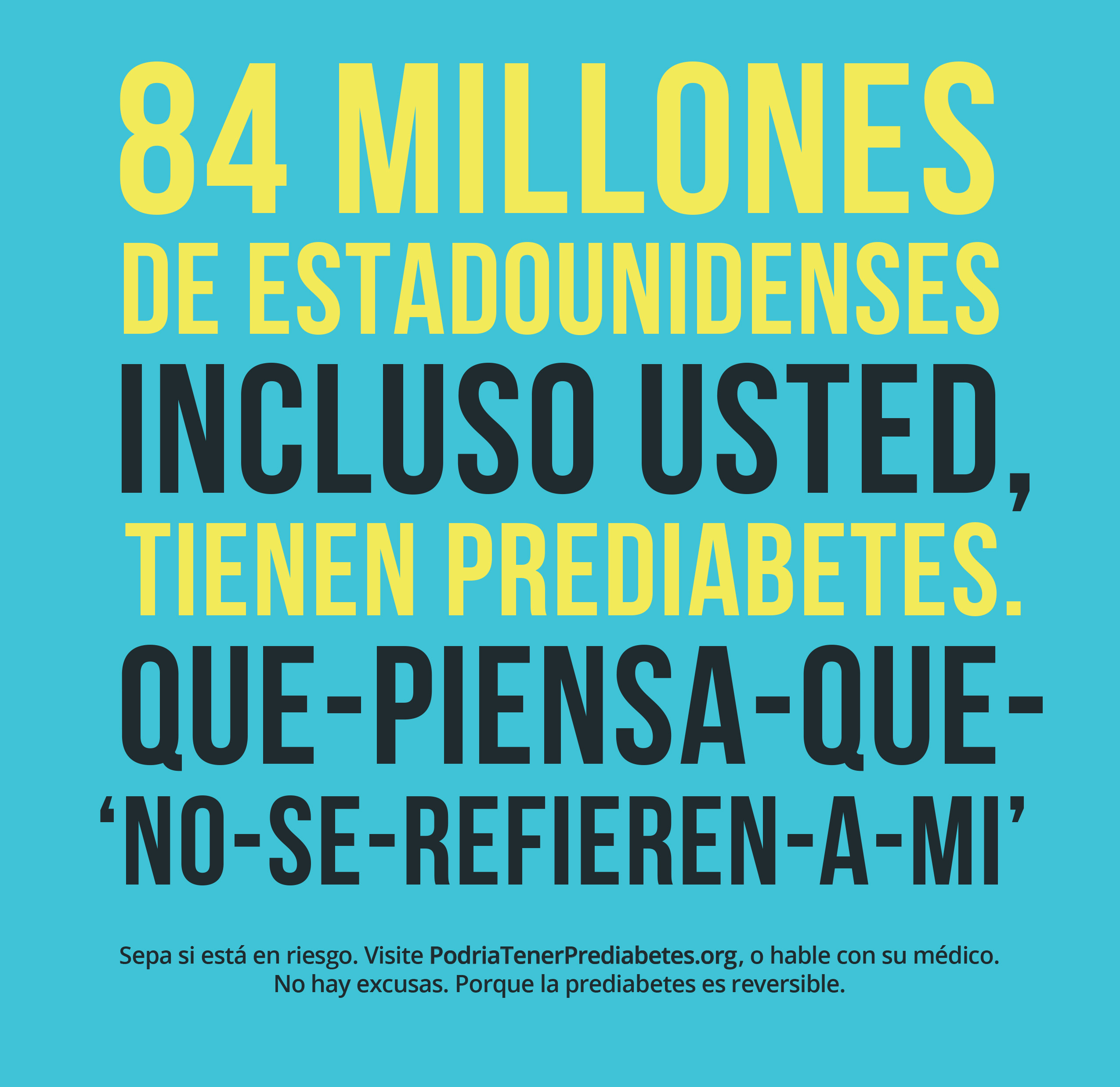DCHD busca aumentar la concientización sobre la Pre-diabetes / DCHD Looks to Raise Pre-diabetes Awareness
Vaya a almorzar con un par de amigos y es probable que uno de ustedes tenga pre diabetes. Ese es el promedio, casi uno de cada tres estadounidenses tiene la afección, pero el 90 por ciento de ustedes no lo sabe.
Noviembre es el Mes Nacional de Concientización sobre la Diabetes y el Departamento de Salud del Condado de Douglas espera que pueda participar en este programa y saber si tiene riesgo de pre diabetes y diabetes.
La pre diabetes es una afección en la cual los niveles de azúcar en la sangre son altos, pero aún no lo suficientemente altos como para clasificarse como diabetes tipo 2. La pre diabetes implica un mayor riesgo, salud a largo plazo, enfermedad cardíaca, accidente cerebrovascular y diabetes tipo 2. En Nebraska, más del 35 por ciento de la población adulta tiene pre diabetes. La buena noticia es que la condición puede revertirse. Cuanto antes se diagnostique y actúe a una persona, es más probable que pueda prevenir o retrasar el inicio de la diabetes tipo 2
El Departamento de Salud del Condado de Douglas es miembro del Departamento de Personas sin Hogar y Prevención en DoiHavePrediabetes.org. El sitio web ofrece consejos sobre el estilo de vida y conecta a los visitantes al Programa Nacional de Prevención de la Diabetes liderado por los CDC.
“La diabetes es una de las principales preocupaciones de salud en el condado de Douglas”, dijo la Director de Salud del Dra. Adi. “La buena noticia es que se pueden abordar muchas cosas si trabajas con tu proveedor de atención médica y realizas algunos cambios relativamente simples en tu estilo de vida”.
La pre diabetes se puede revertir mediante la pérdida de peso, los cambios en la dieta y el aumento de la actividad física. El diagnóstico es crítico, ya que las investigaciones muestran que es mucho más probable que las personas realicen los cambios de estilo de vida necesarios. Un aumento en la incidencia de diabetes tipo 2 significa un posible aumento en los costos de atención médica y una reducción en la calidad de vida.
Durante el resto del año, el Departamento de Salud del Condado de Douglas será responsable del riesgo de muerte. Invierta en su salud mediante una prueba de riesgo y hable con su proveedor de atención médica sobre su riesgo de desarrollar prediabetes y diabetes.
Información adicional sobre la campaña está disponible en línea en DoIHavePrediabetes.org
DCHD Looks to Raise Pre diabetes Awareness
Go to lunch with a couple friends and chances are one of you has prediabetes. That’s the average, as roughly one in three Americans has the condition, but 90 percent of you don’t know it.
November is National Diabetes Awareness Month and the Douglas County Health Department hopes you will participate by taking control and learning if you are at risk of prediabetes and diabetes.
Prediabetes is a condition in which blood sugar levels are high, but not yet high enough to be classified as type 2 diabetes. Prediabetes means increased risks to you long-term health, including heart disease, stroke, and developing type 2 diabetes. In Nebraska, more than 35 percent of the adult population has prediabetes. The good news is the condition can be reversed. The sooner a person is diagnosed and takes action, the more likely they’ll be able to prevent or delay the onset of type 2 diabetes
The Douglas County Health Department is supporting the national awareness campaign and encourages individuals to take a short online test at[doihaveprediabetes.org]DoIHavePrediabetes.org to learn their risk and then speak with their health care provider to confirm the diagnosis. The website features lifestyle tips and connects visitors to the CDC-led National Diabetes Prevention Program.
“Diabetes is among the leading health concerns in Douglas County,” Health Director Dr. Adi Pour said. “The good news is that many cases can be addressed if you work with your health care provider and make some relatively simple changes in lifestyle.”
Prediabetes often can be reversed through weight loss, diet changes, and increased physical activity. Diagnosis is critical, as research shows people are much more likely to make the necessary lifestyle changes once they know of their condition. An increase in the incidence of type 2 diabetes means a potential increase in health care costs and reduced quality of life.
Through the remainder of the year, Douglas County Health Department employees will be in the community handing out prediabetes risk tests and referring those who are at-risk to local Diabetes Prevention Program providers. Invest in your health this month by completing a risk test and talking to your healthcare provider about your risk of developing prediabetes and diabetes.
Additional information on the campaign is available online at DoIHavePrediabetes.org

